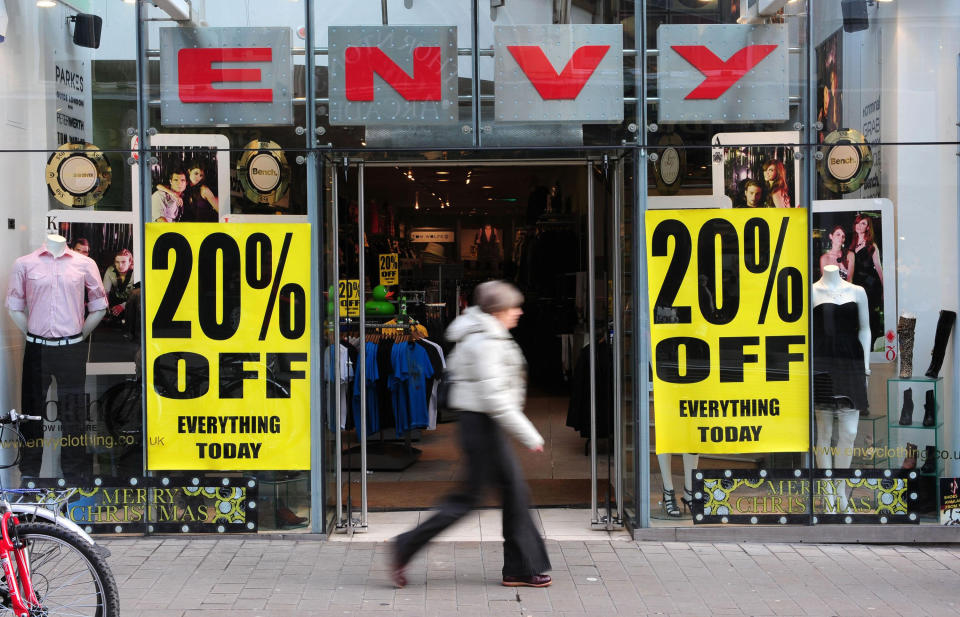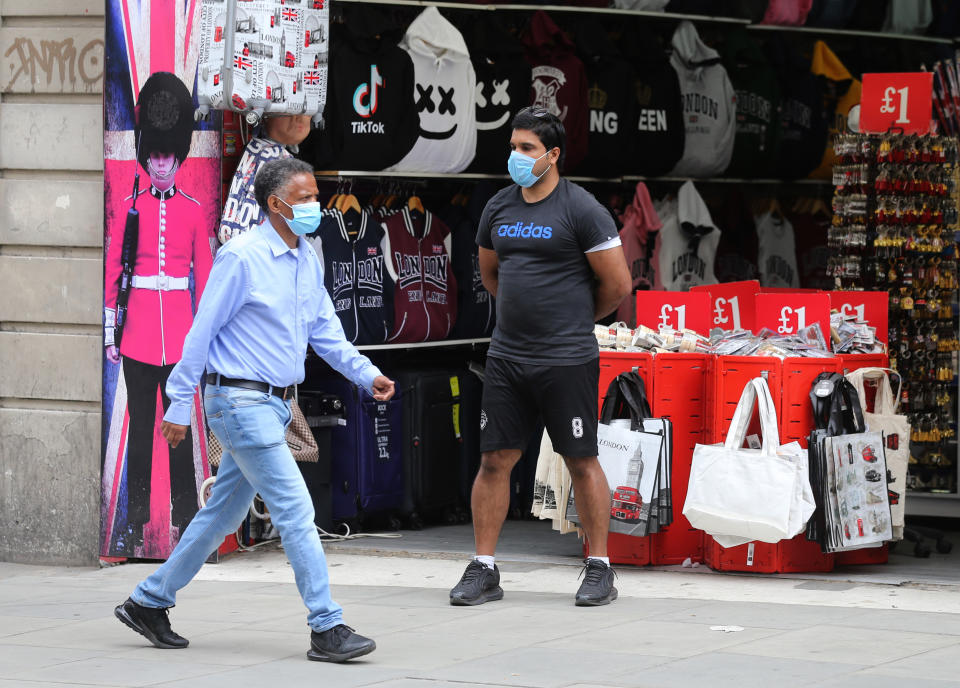Coronavirus: Why cutting VAT may not revive the UK economy

The UK government is under mounting pressure to slash VAT to help revive the UK economy, with a chorus of business leaders and politicians demanding urgent action.
The Treasury is reported to be weighing up lowering the 20% standard rate on many goods and services as early as next month, or making more targeted reductions for the hard-hit tourism and hospitality sectors.
But a new report by the Institute for Fiscal Studies (IFS) cautions against rushing through tax cuts, warning it may not revive the UK economy as much as widely hoped.
The case for a VAT cut to reboot growth
Business leaders and some leading politicians believe a VAT cut would help Britain’s economy to recover from the crippling impact of the coronavirus crisis.
They argue it would encourage firms to slash prices without taking a hit. Discounted goods and services could in turn encourage consumer spending, which plummeted in many sectors after Britain went in lockdown.
Trade bodies representing thousands of UK firms have given temporary VAT cuts their backing in recent weeks, amid fears the downturn and social distancing will limit sales despite lockdown restrictions easing.
The British Retail Consortium says cuts will “stimulate demand,” the Federation of Small Businesses (FSB) says they will “jump-start the economy,” and UKHospitality said tourism-focused cuts would “assist the sector’s recovery.”
READ MORE: Calls to scrap triple lock as pensions set to outstrip earnings
MPs in Westminster’s all-party parliamentary group for hospitality and tourism also said the tax should be lowered by 10% last month.
Supporters do not need to look far back in history for evidence to back their case. The Labour government in power during the global financial crisis just over a decade ago introduced just such a measure.
Labour peer Alistair Darling, who as then-chancellor oversaw a 2.5 percentage point drop in VAT to 15% in 2008, is among those demanding similar cuts now.
The IFS, one of Britain’s most respected think tanks, notes there is “evidence that cutting VAT has been effective at stimulating consumer demand in the past.” Its analysis suggests the temporary one-year measure in 2008 succeeded in boosting consumer sentiment and retail sales, helping Britain out of the last economic crisis.
Why firms may not slash prices after a VAT cut

The link between lower taxes, lower prices and higher spending may not be as obvious as supporters hope, however.
The IFS says the coronavirus means economic conditions are very different to 2008, and argues the evidence a tax cut will boost growth is “mixed.”
The IFS warns some firms may not in fact pass cuts onto consumers. Many still face significant constraints on supply, such as disrupted supply chains, cashflow challenges, limited staffing or space amid continued social distancing. This may leave them unable to cater for and profit from a large spike in demand if they slash prices.
“Until these supply constraints ease, these firms will be less likely to cut the prices they charge consumers if VAT rates fall,” notes the IFS in a paper published on Friday.
Why price cuts may not increase UK spending
Non-food retailers are already slashing prices however, desperate to boost sales after an unprecedented shutdown and reverse weak consumer spending.
Such pressures could far outweigh any supply issues for some firms, the IFS notes, with many retailers in particular keen to shift excess stock.
This suggests some firms would happily pass on a VAT cut if they believe they can meet demand.
But lower prices in themselves may not be enough to encourage spending. Surveys suggest both individuals and firms remain worried about the virus and their own finances, with household incomes taking a significant hit in recent months.
READ MORE: Ex-chancellor warns UK must prepare for mass job losses
As the IFS notes: “Continued fear of the virus and its longer-run impact on the economy may depress consumers’ responsiveness to price falls.”
It says uncertainty is greater than after the financial crisis, and warns consumers are particularly likely to be careful about expensive purchases like cars or fridges.
Best to ‘wait and see’
The IFS believes the best policy now is a “wait-and-see” approach. It suggests monitoring how far sales rise without a cut as the economy reopens, with little point in “cutting taxes on purchases that would have happened anyway.”
This could then inform whether a cut is needed, and where, how and when it is applied if so.
Peter Levell, a senior research economist at the IFS, concluded: “There is little point introducing a VAT cut if continued fear of the virus, or continued social distancing restrictions, mean that firms are unwilling to cut prices or consumers are simply unwilling to spend.
“The government needs to assess carefully the economic situation and benefits of specific stimulus measures over the coming weeks."

 Yahoo Finance
Yahoo Finance 